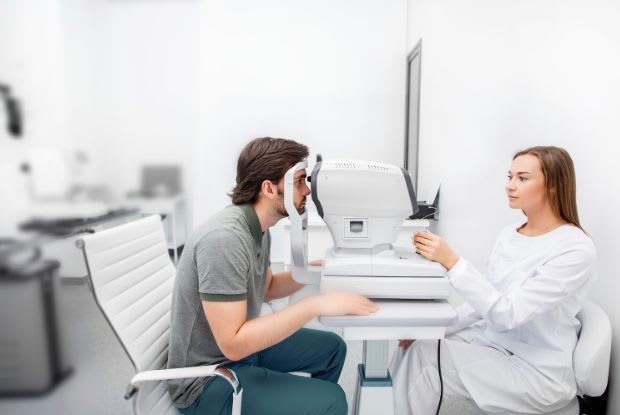Ozempic Side Effects: What to Expect and How to Manage Them
Ozempic Side Effects: What to Expect and How to Manage Them
Table of Contents
I. Common Ozempic Side Effects
II. Serious Ozempic Side Effects
III. Ozempic Drug Interactions
Ozempic is a highly effective medication for managing type 2 diabetes and promoting weight loss. However, as with any drug, Ozempic may cause side effects in some patients. It’s important to be aware of possible side effects and report any concerning symptoms to your doctor right away.
In this article, we will dive into the common and serious side effects of Ozempic, highlight important drug interactions to be mindful of, and address the use of Ozempic during pregnancy. Additionally, we will provide practical tips on managing unwanted symptoms.
Common Ozempic Side Effects
Starting a semaglutide like Ozempic can be an adjustment. You may experience some side effects when you first begin taking semaglutide or increase your dose. However, most symptoms are temporary and resolve within a few weeks. 1 To minimize side effects, it’s critical that you follow the dosing schedule provided by your doctor.
Nausea
It is common to experience nausea or vomiting when starting Ozempic or increasing your dose. This is because Ozempic lowers blood sugar and increases insulin, which can upset your stomach as your body adjusts. 1
The good news is that for most people, these side effects go away within a few weeks. 1 There are several steps you can take to alleviate discomfort during this period:
- Get fresh air
- Take sips of a cold drink
- Consume foods and beverages containing ginger (ginger tea, ginger biscuits)
- Eat smaller, more frequent meals
- Avoid sweets and fried food. 2
Diarrhea
Diarrhea can be a frustrating side effect for some people taking Ozempic. 1 Moreover, it can become dangerous if it leads to dehydration. 3
To prevent diarrhea and avoid dehydration, incorporate these tips into your diet:
- Follow the BRAT diet: These foods are bland and easy to digest. Options include bananas, rice, applesauce, and toast.
- Stay hydrated: Drink plenty of water throughout the day. Additionally, add foods with a high water content to your diet. Some options include soups and broths. 3
Contact your doctor immediately if your diarrhea is severe or does not get better. Diarrhea lasting more than a couple of days can lead to dehydration and electrolyte imbalance. 3
Constipation

If you experience constipation while taking Ozempic, 1 it’s important to address it right away. Untreated constipation can lead to complications like hemorrhoids and a dangerous buildup of stool in the colon. 4
One factor that may contribute to constipation from Ozempic is nausea or vomiting, which can cause dehydration and constipation. However, the good news is that Ozempic-related constipation is typically mild. 1
To relieve constipation, try these tips:
- Drink plenty of water and consume water-rich foods to avoid dehydration.
- Use an over-the-counter stool softener to make stools easier to pass.
- Eat high-fiber foods. Insoluble fiber foods like wheat bran, whole grains, and vegetables can help promote regularity. 5
Serious Ozempic Side Effects
Though rare, Ozempic may cause serious problems that require stopping treatment. To stay safe while taking Ozempic, it’s important to let your doctor know of your complete medical history. Additionally, if you experience any concerning symptoms, seek immediate medical attention.
Risk of Thyroid C-Cell Tumors
Ozempic carries a serious boxed warning about the potential risk of thyroid C-cell tumors. 1
Animal studies found that Ozempic's active ingredient, semaglutide, caused thyroid tumors in rodents. It's unknown if Ozempic raises thyroid cancer risk in humans. But as a precaution, those with a personal or family history of medullary thyroid carcinoma (MTC) or multiple endocrine neoplasia syndrome type 2 (MEN 2) likely won't be prescribed Ozempic. 1
It’s important to stay vigilant about thyroid cancer symptoms while taking Ozempic. If you experience the following symptoms, contact your doctor immediately:
- Trouble breathing
- Hoarse voice
- Lump or swelling in your neck 6
Kidney Failure
Nausea and vomiting are common side effects of Ozempic that can make it challenging to stay properly hydrated. However, maintaining adequate fluid intake is crucial, especially if you have pre-existing kidney issues. Dehydration can exacerbate kidney problems, so it's important to be proactive about getting enough fluid. 1
To make sure you are drinking enough fluids while on Ozempic, follow these tips:
- Drink a glass of water as soon as you wake up and before each meal.
- Make sure your urine is clear or light in color. This indicates adequate hydration.
- Set reminders on your phone to drink water throughout the day.
- Add water-rich foods to your diet (such as soups and broths).
Diabetic Retinopathy

Ozempic can be an effective medication for improving blood sugar control in people with type 2 diabetes. However, rapid improvement in blood sugar levels has been linked to a temporary worsening of diabetic retinopathy, an eye condition caused by damage to the blood vessels in the retina. 1
Diabetic retinopathy can lead to the following symptoms:
- Worsening vision
- Vision loss
- Floating shapes in the field of vision
- Blurry eyesight
- Eye pain
- Difficulty seeing in low light conditions 7
If you have a history of diabetic retinopathy, it's important to inform your doctor before starting Ozempic so they can monitor the condition closely. 1
Ozempic Drug Interactions
When starting any new medication, it’s important to let your doctor know about all the medications you are taking (including any OTC drugs) and your dietary habits, such as your alcohol intake and use of supplements. This helps to avoid any drug interactions and unwanted side effects.
Ozempic has a couple of drug interactions to be aware of:
- Oral medications : Ozempic can affect the absorption of oral medications by slowing down stomach emptying. Your doctor may want to frequently check the blood levels of these drugs and adjust your dose as needed.
- Insulin : Both Ozempic and insulin lower blood sugar, so combining them can lead to dangerously low blood sugar. If you take insulin and Ozempic together, your doctor may decrease your insulin dose. 1
Ozempic and Pregnancy
The safety of Ozempic during pregnancy is still unclear. There is limited data available on taking Ozempic while pregnant or trying to conceive. So, if you are trying to get pregnant or planning a pregnancy, it's very important to discuss Ozempic with your doctor. 1
If your doctor decides to discontinue Ozempic during pregnancy, they will likely do this at least two months before a planned pregnancy starts. This is to ensure the medication has enough time to completely clear your system before conception occurs. 1
Conclusion
Ozempic can be a beneficial part of your type 2 diabetes and weight loss plan. However, as with any medication, it’s important to be aware of the side effects and let your doctor know if you experience anything concerning.
The most common side effects involve gastrointestinal issues like nausea, vomiting, diarrhea, and constipation. For many people, these side effects are temporary as the body adjusts to the medication.
References
- FDA Ozempic
- NHS Feeling sick (nausea)
- Rosewell Park Comprehensive Cancer Center Managing diarrhea and preventing dehydration
- NHS Constipation symptoms and treatments
- Restivo, J. 8 ways to get constipation relief. Harvard Health
- National Cancer Institute Medullary thyroid cancer
- NHS Diabetic Retinopathy
